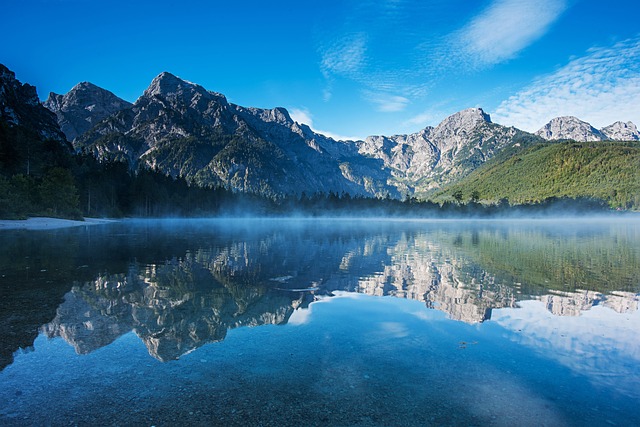Sustainable Tourism in Switzerland: Preserving Beauty for Future Generations

Switzerland, with its pristine alpine landscapes, crystal-clear lakes, and charming villages, is a global leader in sustainable tourism. The country has long recognized the importance of preserving its natural and cultural heritage while promoting responsible travel practices. From eco-friendly accommodations to green transportation options, Switzerland offers a model for sustainable tourism that balances environmental, social, and economic goals. This guide explores the key aspects of sustainable tourism in Switzerland and how visitors can contribute to preserving this beautiful country for future generations.
1. Switzerland’s Commitment to Sustainability
Switzerland’s dedication to sustainability is rooted in its culture, policies, and innovative practices. The country has set ambitious goals to reduce carbon emissions, protect biodiversity, and promote renewable energy. Key initiatives include:
- Swiss Parks: Switzerland has established numerous national and regional parks, such as the Swiss National Park and UNESCO Biosphere Reserves, to protect its natural ecosystems and promote sustainable tourism.
- Energy Efficiency: The country is a pioneer in renewable energy, with a significant portion of its electricity coming from hydropower, solar, and wind energy.
- Public Transportation: Switzerland’s efficient and extensive public transportation system reduces the need for private cars, minimizing carbon emissions and traffic congestion.
2. Eco-Friendly Accommodations
Switzerland offers a wide range of eco-friendly accommodations that prioritize sustainability without compromising comfort.
- Green Hotels: Many Swiss hotels have adopted eco-friendly practices, such as using renewable energy, reducing water consumption, and sourcing local and organic food. Look for certifications like Swiss Lodge or Green Globe.
- Eco-Lodges: Stay in eco-lodges like Whitepod in the Alps, which combines luxury with sustainability by using renewable energy and minimizing its environmental footprint.
- Mountain Huts: For a more rustic experience, stay in mountain huts managed by the Swiss Alpine Club (SAC), which promote sustainable tourism in remote areas.
3. Green Transportation Options
Switzerland’s public transportation system is one of the most efficient and eco-friendly in the world, making it easy for travelers to explore the country sustainably.
- Swiss Travel Pass: This all-in-one ticket provides unlimited travel on trains, buses, and boats, as well as free entry to many museums and discounts on mountain railways.
- E-Bikes and Cycling: Rent an e-bike or a traditional bicycle to explore Switzerland’s extensive network of cycling paths. Many train stations offer bike rentals, and trains have dedicated spaces for bicycles.
- Electric Vehicles: Switzerland is expanding its network of electric vehicle (EV) charging stations, making it easier for travelers to rent and drive EVs.
4. Sustainable Outdoor Activities
Switzerland’s natural beauty is its greatest asset, and sustainable tourism ensures that it remains unspoiled for future generations.
- Hiking and Trekking: Explore Switzerland’s well-maintained hiking trails, such as the Via Alpina or Jura Crest Trail. Stick to marked paths to protect fragile ecosystems.
- Skiing and Snowboarding: Choose ski resorts that prioritize sustainability, such as Arosa Lenzerheide or Saas-Fee, which use renewable energy and promote eco-friendly practices.
- Wildlife Watching: Visit wildlife parks like Swiss National Park or Tierpark Goldau to observe native species in their natural habitats. Always follow guidelines to minimize disturbance to wildlife.
5. Supporting Local Communities
Sustainable tourism in Switzerland also involves supporting local communities and preserving cultural heritage.
- Farm Stays: Stay on a working farm through programs like Swiss Holiday Farm to experience rural life and support local agriculture.
- Local Markets: Shop at local markets for fresh, organic produce and handmade crafts. This supports local farmers and artisans while reducing the carbon footprint of imported goods.
- Cultural Experiences: Participate in traditional festivals, such as Fasnacht in Basel or Alpabzug in the Alps, to learn about Swiss culture and support local traditions.
6. Reducing Waste and Plastic Use
Travelers can contribute to sustainability by minimizing waste and avoiding single-use plastics.
- Reusable Water Bottles: Switzerland’s tap water is safe to drink and of excellent quality. Carry a reusable water bottle to reduce plastic waste.
- Recycling: Switzerland has a robust recycling system. Use designated bins for paper, glass, and plastic, and follow local recycling guidelines.
- Eco-Friendly Products: Choose eco-friendly toiletries and products with minimal packaging to reduce waste during your trip.
7. Sustainable Dining
Switzerland’s culinary scene is increasingly embracing sustainability, with many restaurants focusing on local, organic, and seasonal ingredients.
- Farm-to-Table Restaurants: Dine at restaurants that source ingredients from local farms, such as Restaurant Schloss Schauenstein in Fürstenau or Baur au Lac in Zurich.
- Vegetarian and Vegan Options: Many Swiss restaurants offer vegetarian and vegan dishes, reducing the environmental impact of meat production.
- Sustainable Seafood: Choose seafood that is sustainably sourced and certified by organizations like the Marine Stewardship Council (MSC).
8. Eco-Certifications and Labels
Look for eco-certifications and labels that indicate a commitment to sustainability.
- Swisstainable: A national initiative promoting sustainable tourism in Switzerland. Look for the Swisstainable label on accommodations, attractions, and activities.
- Green Key: An international eco-label for hotels and accommodations that meet high environmental standards.
- MyClimate: A Swiss organization that offers carbon offset programs for travelers. Consider offsetting your travel emissions through their platform.
9. Educational and Conservation Programs
Switzerland offers numerous programs that allow travelers to learn about sustainability and contribute to conservation efforts.
- Volunteer Opportunities: Participate in conservation projects, such as tree planting or wildlife monitoring, through organizations like WWF Switzerland or Pro Natura.
- Guided Eco-Tours: Join guided tours that focus on sustainability, such as Swiss Eco Adventures or Alpine Conservation Experience.
- Museums and Exhibits: Visit museums like the Swiss Museum of Transport in Lucerne or the Alpine Museum in Bern to learn about sustainability and environmental conservation.
10. Tips for Sustainable Travel in Switzerland
To make your trip to Switzerland as sustainable as possible, follow these tips:
- Travel Off-Peak: Visit during the shoulder seasons (spring and autumn) to reduce overcrowding and minimize your environmental impact.
- Pack Light: Bring only what you need to reduce the weight of your luggage and lower fuel consumption during transportation.
- Respect Nature: Follow the Leave No Trace principles by staying on trails, not disturbing wildlife, and taking your trash with you.
- Support Local: Choose locally owned businesses, from accommodations to restaurants, to support the local economy and reduce the carbon footprint of imported goods.



